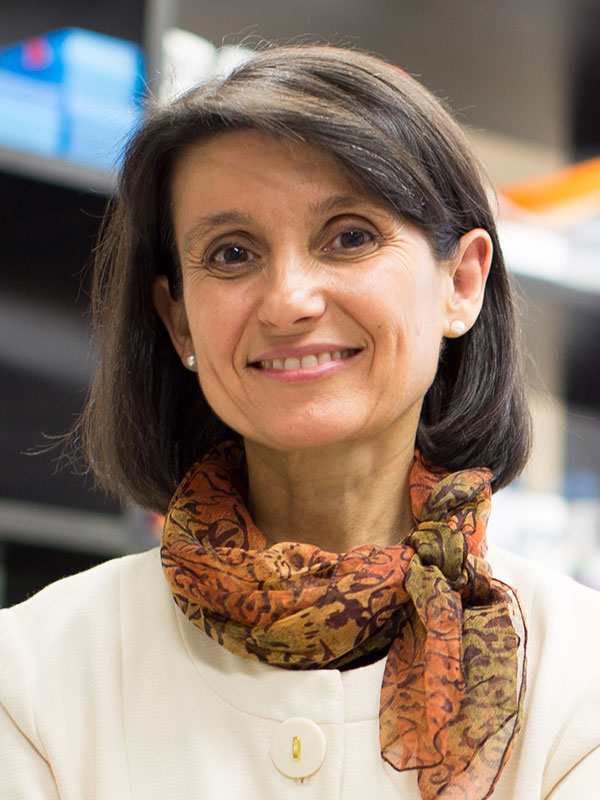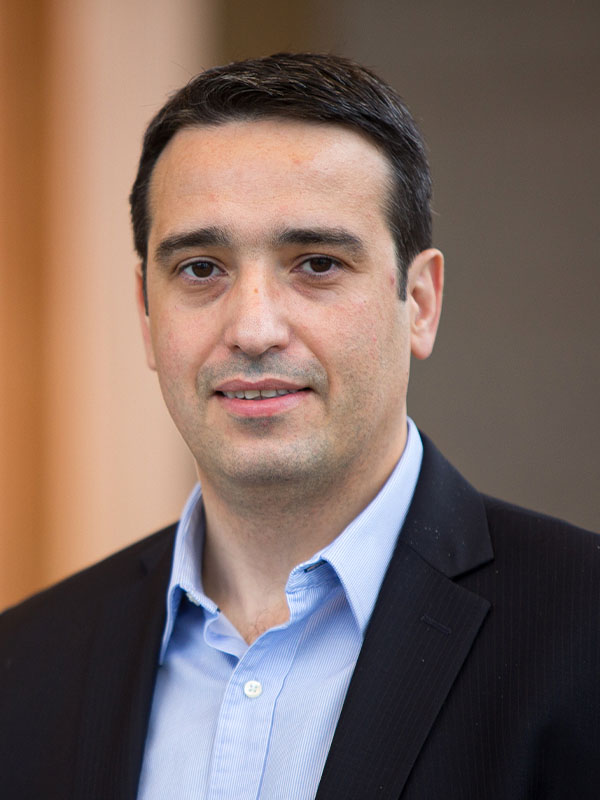Parkinson’s Disease Research
Albert Einstein College of Medicine Receives Grant From The Michael J. Fox Foundation to Fund Drug Discovery Project Targeting Parkinson's
July 24, 2014—(BRONX, NY)—Researchers at Albert Einstein College of Medicine of Yeshiva University have received a grant from The Michael J. Fox Foundation for Parkinson's Research to translate a basic science finding into a treatment for Parkinson's disease. This drug discovery project will test chemical compounds on a newly identified target with the goal of developing a drug that acts on an underlying cause of the disease.

Ana Maria Cuervo, M.D., Ph.D."While current therapies for Parkinson's help many people manage their symptoms, we are eager to stop or even reverse the disorder itself," said Ana Maria Cuervo, M.D., Ph.D., professor of developmental and molecular biology, co-director of the Institute for Aging Research, and the Robert and Renée Belfer Chair for the Study of Neurodegenerative Diseases at Einstein and principal investigator on the grant. "The support we are receiving from The Michael J. Fox Foundation is critically important for moving our insights from the lab into a workable treatment."
According to the Parkinson's Disease Foundation, approximately one million people in the United States have Parkinson's disease and about 60,000 people are diagnosed annually. Parkinson's disease is a chronic, progressive neurological disorder caused by a loss of neurons in the brain that produce dopamine—a neurotransmitter that controls movement. The absence of dopamine leads to the tremors, rigid limbs and slow movement that characterize the disease. The average age of onset is about 60 years old.
"The support we are receiving from The Michael J. Fox Foundation is critically important for moving our insights from the lab into a workable treatment."
-- Ana Maria Cuervo, M.D., Ph.D.
Dr. Cuervo's research focuses on chaperone-mediated autophagy (CMA), the process that cells use to break down and recycle their waste products. In a study published in Nature Neuroscience last year, Dr. Cuervo found that CMA is compromised in the neurons of Parkinson's patients. The result: a build-up of toxic proteins—particularly alpha-synuclein, which has previously been implicated in Parkinson's. Dr. Cuervo's lab also identified a signaling pathway that can be targeted to enhance CMA and improve the removal of these toxic proteins.

Evripidis Gavathiotis, Ph.D.Dr. Cuervo is collaborating with Evripidis Gavathiotis, Ph.D., assistant professor of biochemistry and of medicine at Einstein and co-principal investigator on the grant, to develop drugs that home in on this new target. Dr. Gavathiotis uses structure-based design and medicinal chemistry to create new drug compounds. His lab has already created several chemical compounds that successfully act on the target and turn on CMA in cells.
"The goal of this project is to develop a prototype drug and validate what we have seen in the lab—that boosting CMA activity is a feasible option to treat Parkinson's," said Dr. Gavathiotis.
In a 2013 study published in Nature Chemical Biology, the team reported the first CMA activator compounds. They now plan to generate at least 30 new compounds and identify the most promising one or two candidates that can activate CMA in mouse models. The next step would be to test the compounds in animal models of Parkinson's disease.
"As pharmaceutical companies cut their research and development budgets, there's a real concern that compounds that could successfully treat disease will go undeveloped," said Vern Schramm, Ph.D., professor and chair of biochemistry and the Ruth Merns Chair in Biochemistry at Einstein. "Scientists must be more persistent and creative to make sure their promising discoveries move along the pipeline and don't die of neglect or from lack of NIH funding. It's exciting and promising for the future of Parkinson's Disease to see Ana Maria and Evris' work attract this kind of support."
The $165,000 grant, for the project titled "Chemical Modulator of Chaperone-medicated Autophagy in Parkinson's Disease," is for the one-year drug development plan.
Other Top Stories
9/11 World Trade Center Exposure Linked to Heart Disease Among NYC Firefighters
On Becoming a Physician: New Einstein Students Receive White Coats and Stethoscopes
Novel Therapy for Acute Migraine Shows Promise in Phase 3 Clinical Trial
First Complete Wiring Diagram of an Animal's Nervous System
Multimillion Dollar NIH Grant to Help Reduce Opioid Use & Get Care to People Who Need It
NIH Grant Funds $23 Million Study of Diseases Affecting People Living with HIV
New TAILORx Data Guides Adjuvant Therapy in Younger Breast Cancer Patients
Einstein Celebrates Its 61st Commencement
Bolstering Biopsies: Testing Patients' Individual Cells to Guide Treatment



Tablet Blog